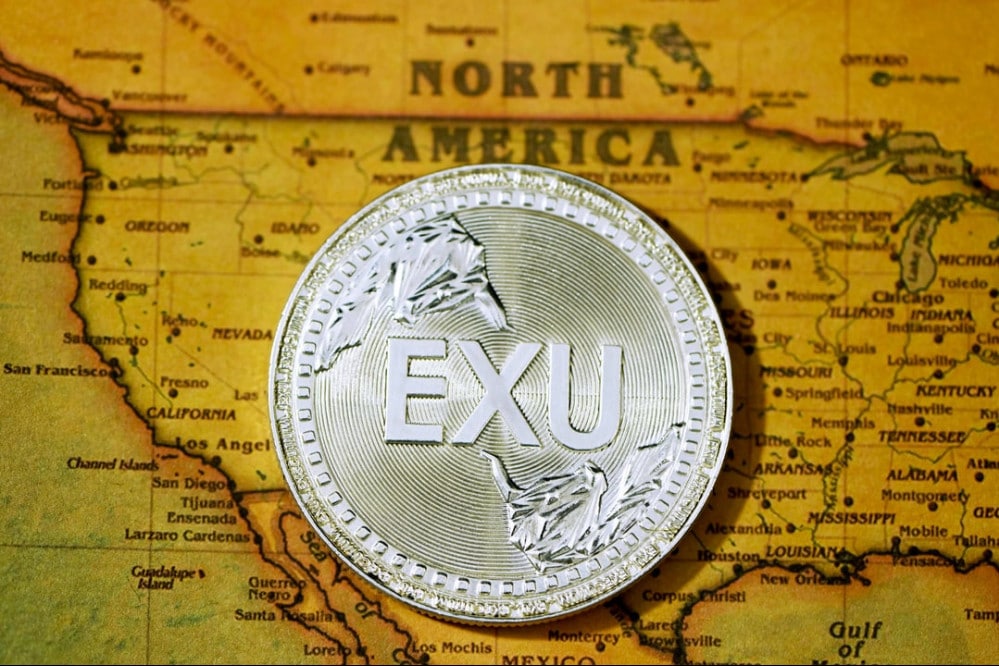
Some people ask, Will Bitcoin Be Regulated?
Other people ask, Is Bitcoin Regulation Even Possible?
In this article, you’ll find 5 areas that will shed some light on the subject.
There are a lot of people and countries that want to regulate bitcoin and some already have. Some also think regulation will be good for the industry and some think it will be bad. A lot of people say regulation of the crypto market is needed because of the criminals who use it as payment for illicit activities. Even though we don't know the exact extent behind regulations, I'm willing to bet they're going to go through with it.

Before we decide the validity of Bitcoin Regulation, let’s lay out two of the main factors that are behind some of the regulation conversations.
That would be the big and small picture when it comes to the economy.
First, there is a fear among some people that bitcoin and other cryptos could act as a substitute for the U.S. dollar.
As of now, the dollar is the World’s Reserve Currency.
Also, most foreign bank reserves are denominated in U.S. dollars.
So if bitcoin and/or other cryptocurrencies were ever globally accepted as superior alternatives to the dollar, there is a chance that people worldwide would flock to it and flee the dollar.
Now if this were to happen, anyone holding U.S. dollar-denominated assets would sell them no matter the price.
This would include foreign governments, foreign exchange traders, fund managers, and private investors too.
Which would then cause the dollar to collapse.
That in turn would cause hyperinflation and panic buying.
Not only that, but a lot of people would also lose their life savings since it is probably tied to the dollar in some way.
One of the best attributes surrounding crypto is anyone’s ability to send bitcoin in any amount from a few cents to over a billion dollars to any part of the world.
Also, they can do this 24 hours a day, 7 days a week, 365 days a year, and for a relatively small fee.
However, some people are worried that this ease of transfer combined with decentralization can be used for nefarious actions when in the wrong hands.
Money laundering, buying and selling illegal drugs, terrorism, and more recently ransomware hacks are a few of the bad acts they’re concerned with.

Two big obstacles are standing in the way of bitcoin being totally regulated.
The first one is that it uses distributed ledger technology (Blockchain Technology) and the other is its decentralization.
According to (Investopedia) “Distributed Ledger Technology (DLT) refers to the technological infrastructure and protocols that allows simultaneous access, validation, and record updating in an immutable manner across a network that's spread across multiple entities or locations.”
Now for our discussion, using DLT means that bitcoin is spread out amongst many different locations at the same time.
So that means it would be very difficult for a single power or entity to enforce regulations internationally.
As far as decentralization goes, that means the control of bitcoin is spread out across thousands of computers (Nodes).
Also, these computers are in locations all over the world.
This would make it almost impossible for one entity to change or fully regulate the network.
However, I do believe that the exchanges are going to be regulated and hopefully countries don’t just try to make crypto illegal, since they can’t totally control it!
Some people are concerned that increased regulation would adversely affect bitcoin and other cryptocurrencies prices and trading volume.
However, there are also those people who think stricter regulation could rid the industry of malevolent individuals and groups.
Now they think that could actually Foster more trust in the industry and make it expand.
So whichever group of people is right is still up in the air.
Although, I think we are going to find out sooner than later.
One clue about this is that the new United States SEC chair Gary Gensler promised he would provide “guidance and clarity” regarding the regulation of the cryptocurrency market.
Now I’m no mind reader, so I don’t know exactly what he meant by that, but as an investor, I’m pretty sure I won’t like it.
Whatever that entails.

Below are some countries that are generally for bitcoin and other cryptocurrencies, as of now at least.
The United States allows crypto to be bought, sold, and traded.
Although, the Financial Crimes Enforcement Network (FinCEN) was issuing guidance on bitcoin since 2013.
That is how the first physical bitcoin coin (Casascius Coin) got shut down.
Also, the Treasury has it defined as a money services business instead of a currency and the IRS has it labeled as property so they can tax it.
Canada views bitcoin pretty similar to the United States.
However, they look upon it as a commodity.
One other thing is that some of the major Canadian banks have put a ban on the use of their debit or credit cards for purchasing cryptocurrencies.
Australia doesn’t classify it as a foreign currency or money, but they do consider it an asset for capital gains taxes.
Also, there are several countries in the EU that are fairly friendly to crypto.
Finland, Belgium, Germany, and the U.K. are among them. Finally, El Salvador is the only country on the globe that accepts bitcoin as legal tender.
Russia doesn’t allow bitcoin to be used to pay for services or products, although they don’t regulate it.
Bolivia has a ban on all cryptocurrencies.
Columbia doesn’t allow the use of bitcoin either.
Ecuador is another country that has banned cryptocurrencies.
Vietnam doesn’t recognize bitcoin as a legitimate payment source, but they don’t regulate it as far as investments go.
Last but definitely not least of the offenders is China.
All of their financial institutions are prohibited from dealing or transacting in bitcoin.
They have also banned the crypto exchanges and they are putting the squeeze on miners.
It’s not a question of whether they will regulate bitcoin, it’s a question of will they stop. There are already some regulations on bitcoin and other cryptocurrencies right now. Some people say regulation will be good for the industry. Although, you have other people that think regulation could severely hamper, if not kill it. I think a lot of government officials and leaders of countries want to regulate bitcoin and other cryptocurrencies because they don’t want to relinquish their power and control. My only hope is that bitcoin and other cryptocurrencies don’t get regulated out of existence!!! Also, I hope countries don’t go too far when regulating the crypto exchanges and/or get together and try to make crypto illegal everywhere.